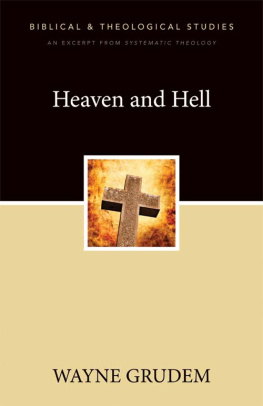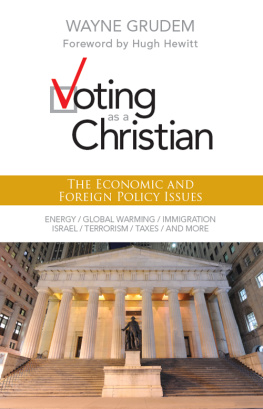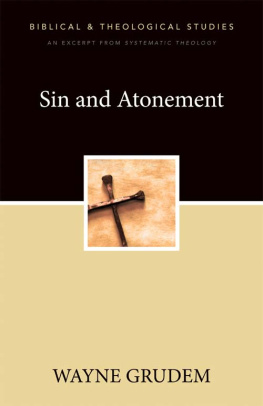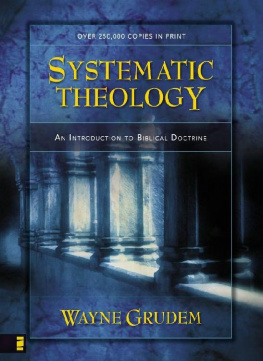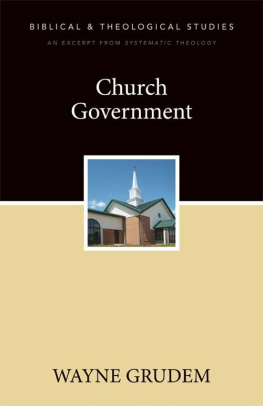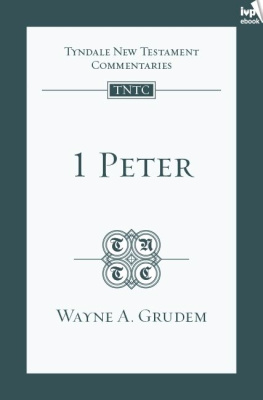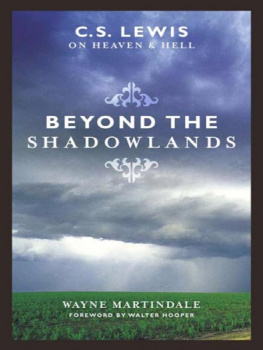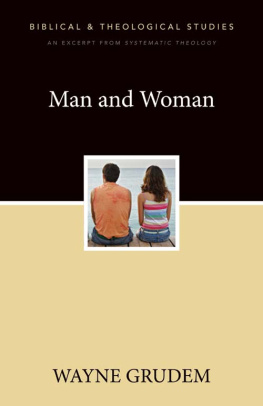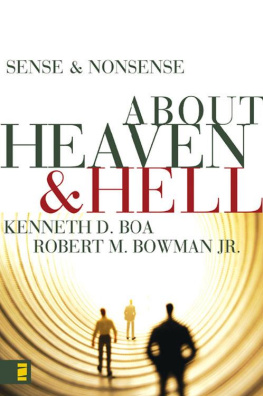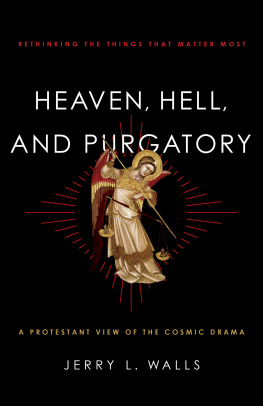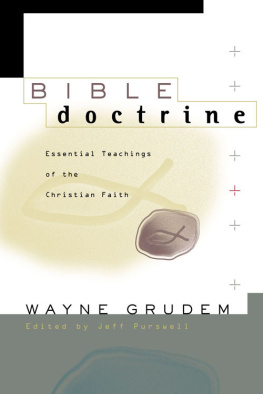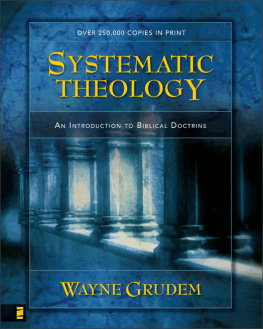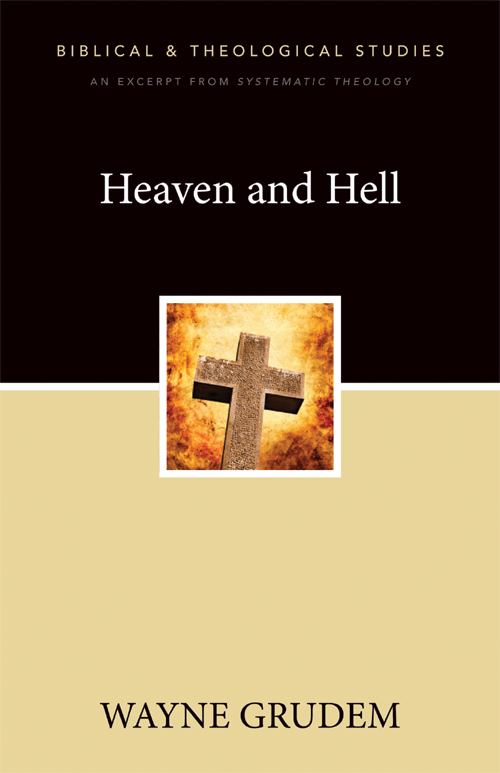
Heaven and Hell
Previously published in Systematic Theology
Copyright 1994 by Wayne Grudem
Appendix 6 and glossary copyright 2000 by Wayne Grudem
Requests for information should be addressed to:
Zondervan, Grand Rapids, Michigan 49530
EPub Edition JANUARY 2012 ISBN-13: 978-0-310-49620-5
Unless otherwise noted, Scripture quotations are taken from the Revised Standard Version of the Bible, copyright 1946, 1952, 1971, by the Division of Christian Education of the National Council of Churches of Christ in the USA, and are used by permission. However, the author has, with permission, modernized archaic personal pronouns and has changed the verbs accordingly.
Scripture quotations marked NASB are from the New American Standard Bible, copyright 1960, 1962, 1963, 1968, 1971, 1972 by the Lockman Foundation, La Habra, California. Used by permission.
Those marked NIV are from the Holy Bible: New International Version. NIV. Copyright 1973, 1978, 1984 by International Bible Society. Used by permission of Hodder and Stoughton Ltd. and Zondervan.
Use of italic in Scripture quotations indicates Wayne Grudems emphasis.
Any Internet addresses (websites, blogs, etc.) and telephone numbers in this book are offered as a resource. They are not intended in any way to be or imply an endorsement by Zondervan, nor does Zondervan vouch for the content of these sites and numbers for the life of this book.
All rights reserved under International and Pan-American Copyright Conventions. By payment of the required fees, you have been granted the non-exclusive, non-transferable right to access and read the text of this e-book on-screen. No part of this text may be reproduced, transmitted, down-loaded, decompiled, reverse engineered, or stored in or introduced into any information storage and retrieval system, in any form or by any means, whether electronic or mechanical, now known or hereinafter invented, without the express written permission of Zondervan.
Cover design: Ron Huizinga
Contents
: The Final Judgment and Eternal Punishment
Who will be judged? What is hell?
: The New Heavens and New Earth
What is heaven? Is it a place? How will the earth be renewed? What will it be like to live in the new heavens and new earth?
The Final Judgment and Eternal Punishment
Who will be judged? What is hell?
EXPLANATION AND SCRIPTURAL BASIS
A. The Fact of Final Judgment
1. Scriptural Evidence for a Final Judgment. Scripture frequently affirms the fact that there will be a great final judgment of believers and unbelievers. They will stand before the judgment seat of Christ in resurrected bodies and hear his proclamation of their eternal destiny.
The final judgment is vividly portrayed in Johns vision in Revelation:
Then I saw a great white throne and him who sat upon it; from his presence earth and sky fled away, and no place was found for them. And I saw the dead, great and small, standing before the throne, and books were opened. Also another book was opened, which is the book of life. And the dead were judged by what was written in the books, by what they had done. And the sea gave up the dead in it, death and hades gave up the dead in them, and all were judged by what they had done. Then death and hades were thrown into the lake of fire. This is the second death, the lake of fire; and if anyones name was not found written in the book of life, he was thrown into the lake of fire. (Rev. 20:1115)
Many other passages teach this final judgment. Paul tells the Greek philosophers in Athens that God Now... commands all men everywhere to repent, because he has fixed a day on which he will judge the world in righteousness by a man whom he has appointed, and of this he has given assurance to all men by raising him from the dead (Acts 17:3031). Similarly, Paul talks about the day of wrath when Gods righteous judgment will be revealed (Rom. 2:5). Other passages speak clearly of a coming day of judgment (see Matt. 10:15; 11:22, 24; 12:36; 25:3146; 1 Cor. 4:5; Heb. 6:2; 2 Peter 2:4; Jude 6; et al.).
This final judgment is the culmination of many precursors in which God rewarded righteousness or punished unrighteousness throughout history. While he brought blessing and deliverance from danger to those who were faithful to him, including Abel, Noah, Abraham, Isaac, Jacob, Moses, David, and the faithful among the people of Israel, he also from time to time brought judgment on those who persisted in disobedience and unbelief: his judgments included the flood, the dispersion of the people from the tower of Babel, the judgments on Sodom and Gomorrah, and continuing judgments throughout history, both on individuals (Rom. 1:1832) and on nations (Isa. 1323; et al.) who persisted in sin. Moreover, in the unseen spiritual realm he brought judgment on angels who sinned (2 Peter 2:4). Peter reminds us that Gods judgments have been carried out periodically and with certainty, and this reminds us that a final judgment is yet coming, for the Lord knows how to rescue the godly from trial, and tokeep the unrighteousness under punishment until the day of judgment, and especially those who indulge in the lust of defiling passion and despise authority (2 Peter 2:910).
2. Will There Be More Than One Judgment? According to a dispensational view, there is more than one judgment to come. For example, dispensationalists would not see the final judgment in Matthew 25:3146:
When the Son of Man comes in his glory, and all the angels with him, then he will sit on his glorious throne. Before him will be gathered all the nations, and he will separate them one from another as a shepherd separates the sheep from the goats, and he will place the sheep at his right hand, but the goats at his left. Then the King will say to those at his right hand, Come, O blessed of my Father, inherit the kingdom prepared for you from the foundation of the world; for I was hungry and you gave me food.... As you did it to one of the least of these my brothers, you did it to me. Then he will say to those at his left hand, Depart from me, you cursed, into the eternal fire prepared for the devil and his angels; for I was hungry and you gave me no food.... As you did it not to one of the least of these, you did it not to me. And they will go away into eternal punishment, but the righteous into eternal life.
From a dispensational perspective, this passage does not refer to final judgment (the great white throne judgment spoken of in Rev. 20:1115), but rather to a judgment that comes after the tribulation and before the beginning of the millennium. They say that this will be a judgment of the nations in which the nations are judged according to how they have treated the Jewish people during the tribulation. Those who have treated the Jews well and are willing to submit to Christ will enter into the millennium, and those who have not will be refused entrance.
Thus, in a dispensationalist view there are different judgments: (a) a judgment of the nations (Matt. 25:3146) to determine who enters the millennium; (b) a judgment of believers works (sometimes called the bma judgment after the Greek word for judgment seat in 2 Cor. 5:10) in which Christians will receive degrees of reward; and (c) a great white throne judgment at the end of the millennium (Rev. 20:1115) to declare eternal punishments for unbelievers.

